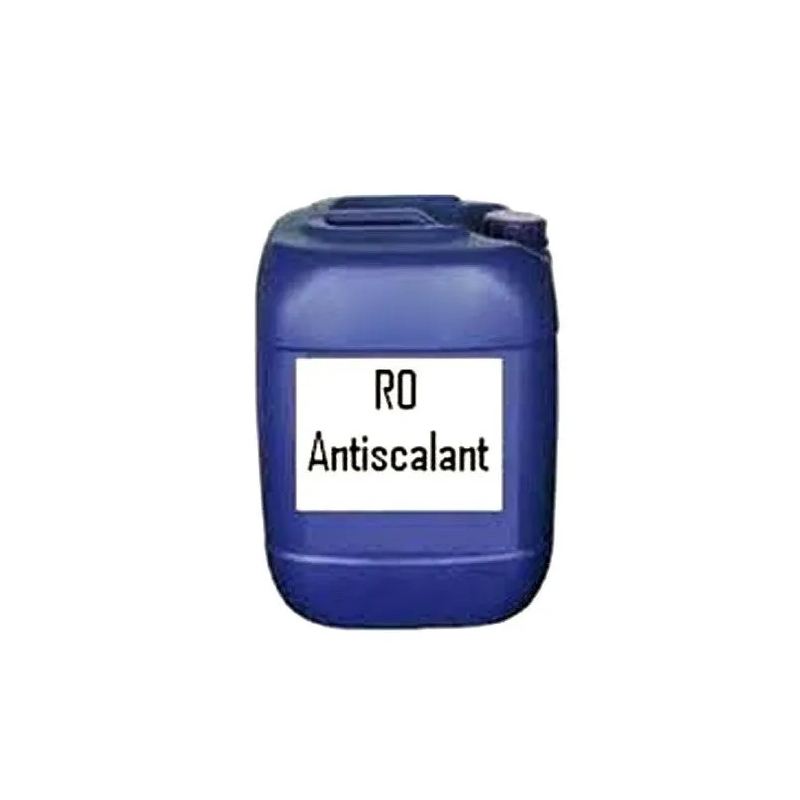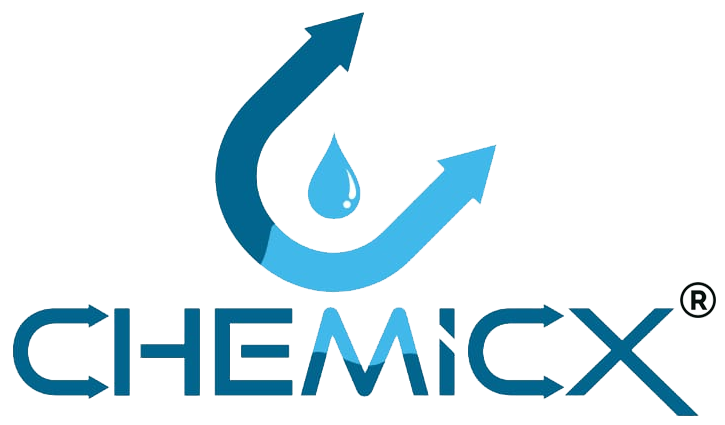
R.O. Antiscalant Chemical
RO Antiscalant is a chemical additive used in reverse osmosis (RO) systems to prevent the formation of scale (mineral deposits) on the membrane surface. It works by inhibiting the precipitation of salts, particularly calcium carbonate, sulfate, and other sparingly soluble minerals, which can clog the RO membrane and reduce its efficiency.
Key features of RO Antiscalants include:
1. Prevention of Scaling: They prevent the buildup of scale on membranes, thus extending the life of the RO system and maintaining its performance.
2. Compatibility: Antiscalants are formulated to be compatible with various types of RO membranes and are designed for different water chemistries, whether in municipal, industrial, or desalination applications.
3. Improved Efficiency: By preventing scale formation, RO systems operate at optimal flow rates and recoveries, reducing the need for frequent membrane cleaning or replacement.
4. Types of Antiscalants: These can be based on phosphonates, polyacrylic acid, or other polymers, each designed to control scaling for specific water qualities, including high salinity or high hardness waters.
5. Application: It is typically dosed before the RO membrane to ensure the chemical treatment prevents scale buildup without affecting the overall water quality.
Using the correct antiscalant is crucial for maximizing the performance and longevity of an RO system, especially in environments with challenging water conditions like hard water or brine.
All Products
- DOMESTIC WATER SOFTENER
- COMMERCIAL RO PLANT
- INDUSTRIAL RO PLANT
- BOTTLING PLANT
- CHILLER PLANT
- COMMERCIAL WATER SOFTENER
- SAND FILTER
- EFFULENT TREATMENT PLANT (ETP)
- SEWAGE TREATMENT PLANT (STP)
- ACTIVATED CARBON FILTER
- ZERO LIQUID DISCHARGE SYSTEM
- ULTRA FILTRATION PLANT
- DE-MINERALIZED (DM) PLANT
- DOMESTIC RO
- DOSING SYSTEM
- IRON REMOVER
- MULTIGRADE FILTER
- POUCH PACKING MACHINE
- PRESSURE PUMP
- SOFTENER SALT
- WATER COOLER
- WATER TREATMENT PLANT
- WATER ATM
- ELECTRO DE-IONIZATION (EDI)
- ULTRA VIOLET SYSTEM
- Media
- Activated Carbon
- Automatic Multiport Valve
- Ion Exchange Resin
- Anion & Cation Resin
- Super Charge Resin
- Float Switch
- Air Release Value
- Distribution System
- Pressure Gauge
- Dosing Pump
- RO Membrane
- Cartridge Filter
- Ultrafiltration Membrane
- Rotameter
- FRP Filter Vessel
- Multi-Port Valve
- RO Pressure Vessel
- UV Disinfectant System
- RO Panel
- R.O. Antiscalant Chemical
- Cooling Water Chemical
- Boiler Water Chemical
- Chiller Water Chemical
- Membrane Cleaner Chemical
- Media Cleaner Chemicals
- Polyelectrolytes (Poly)
- Industrial Water Softener

